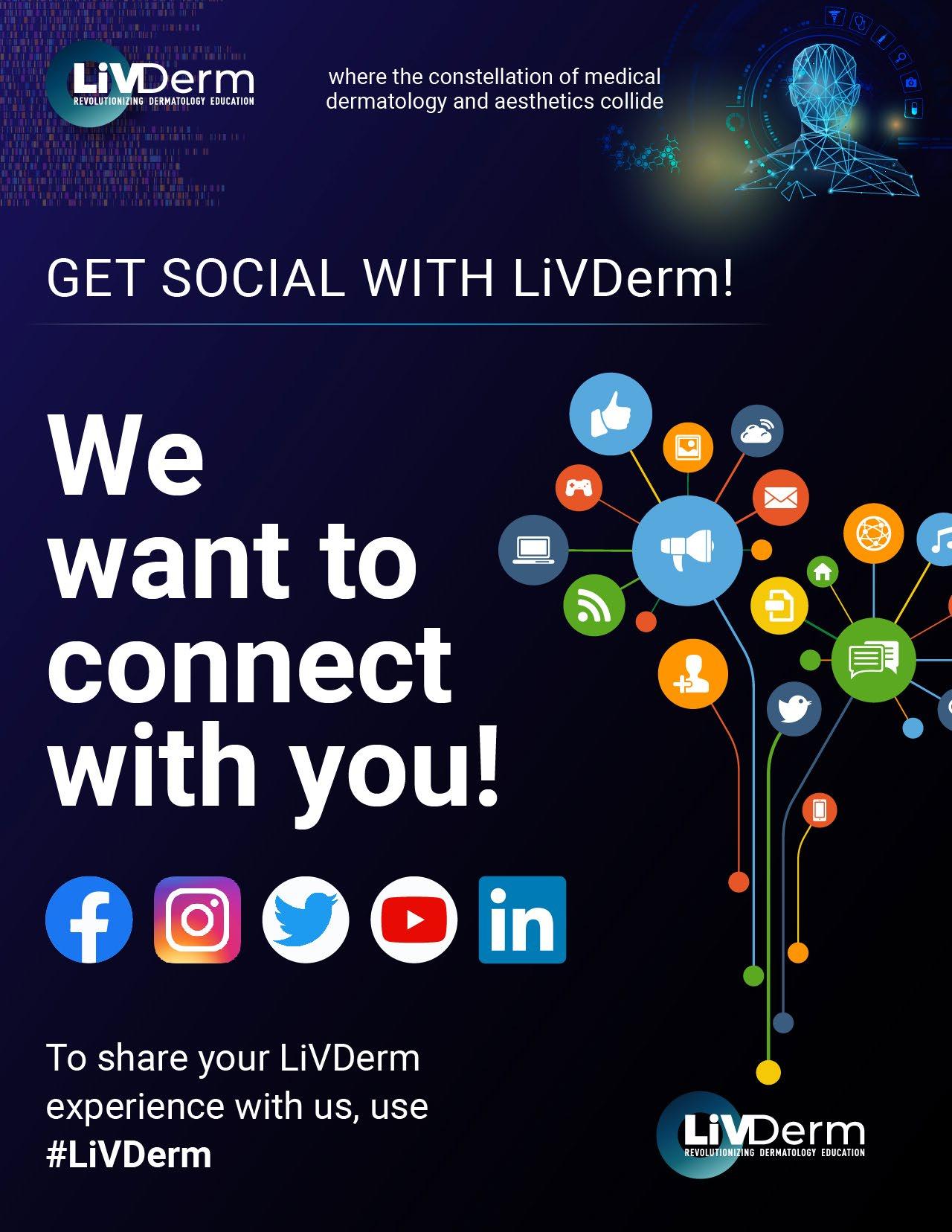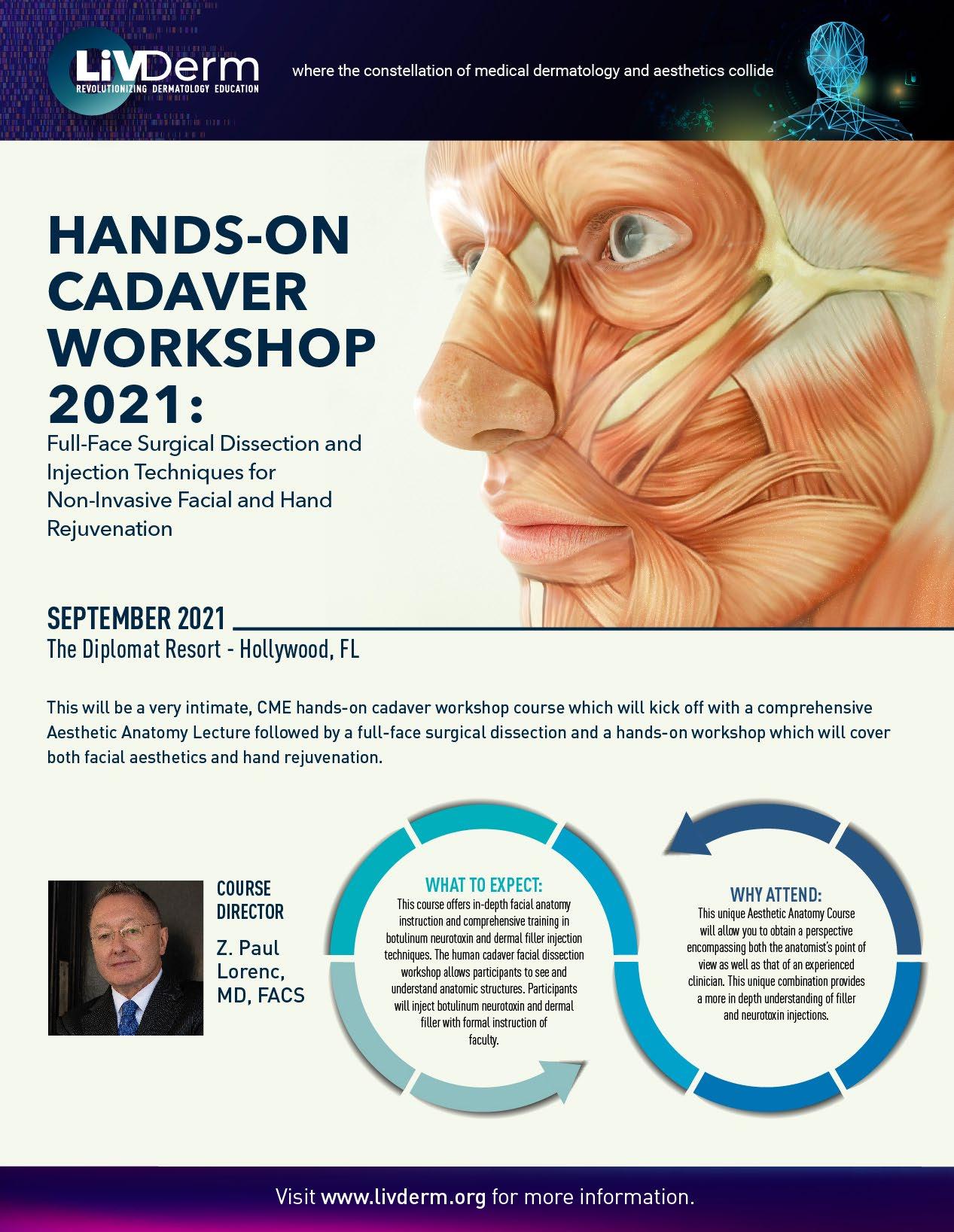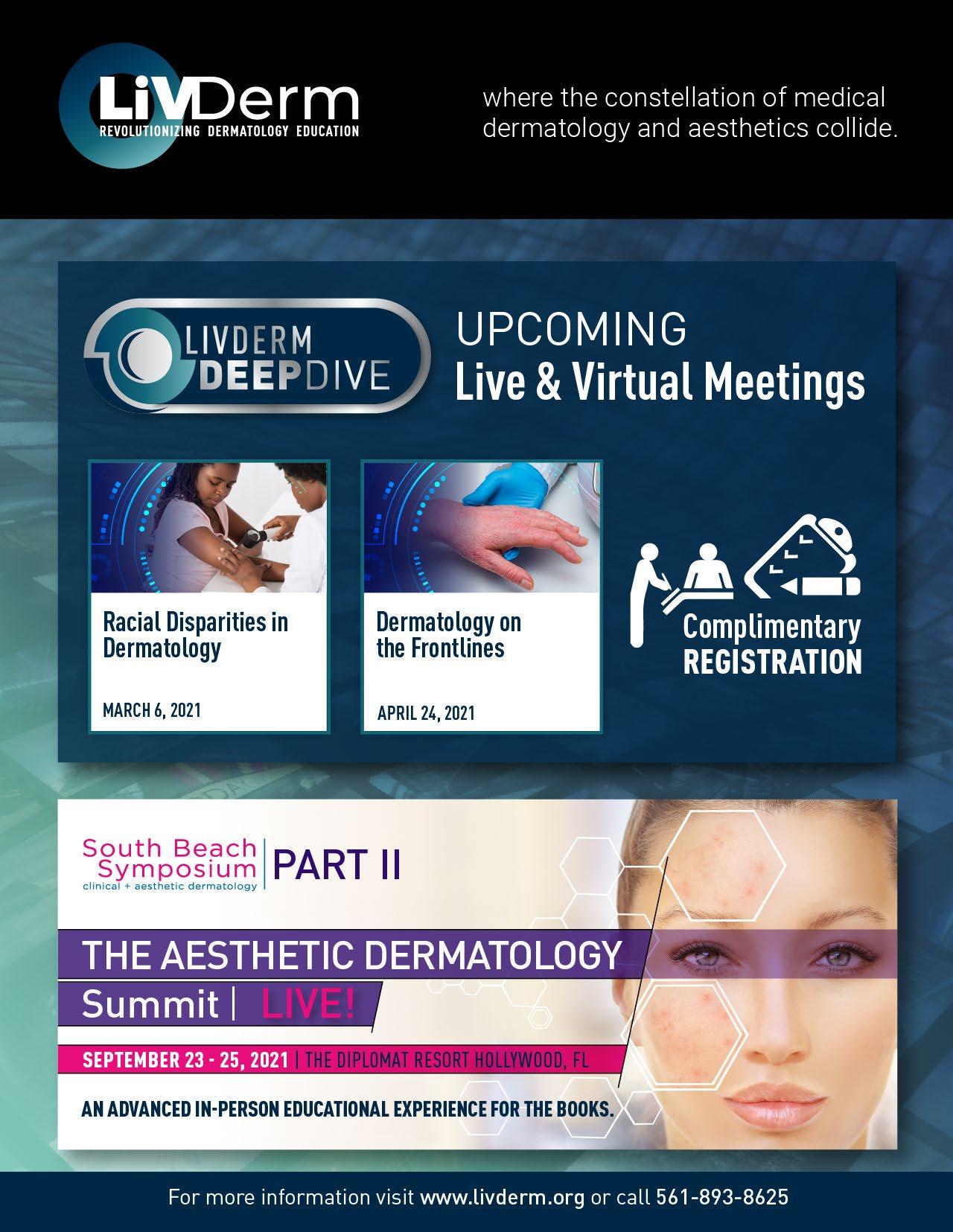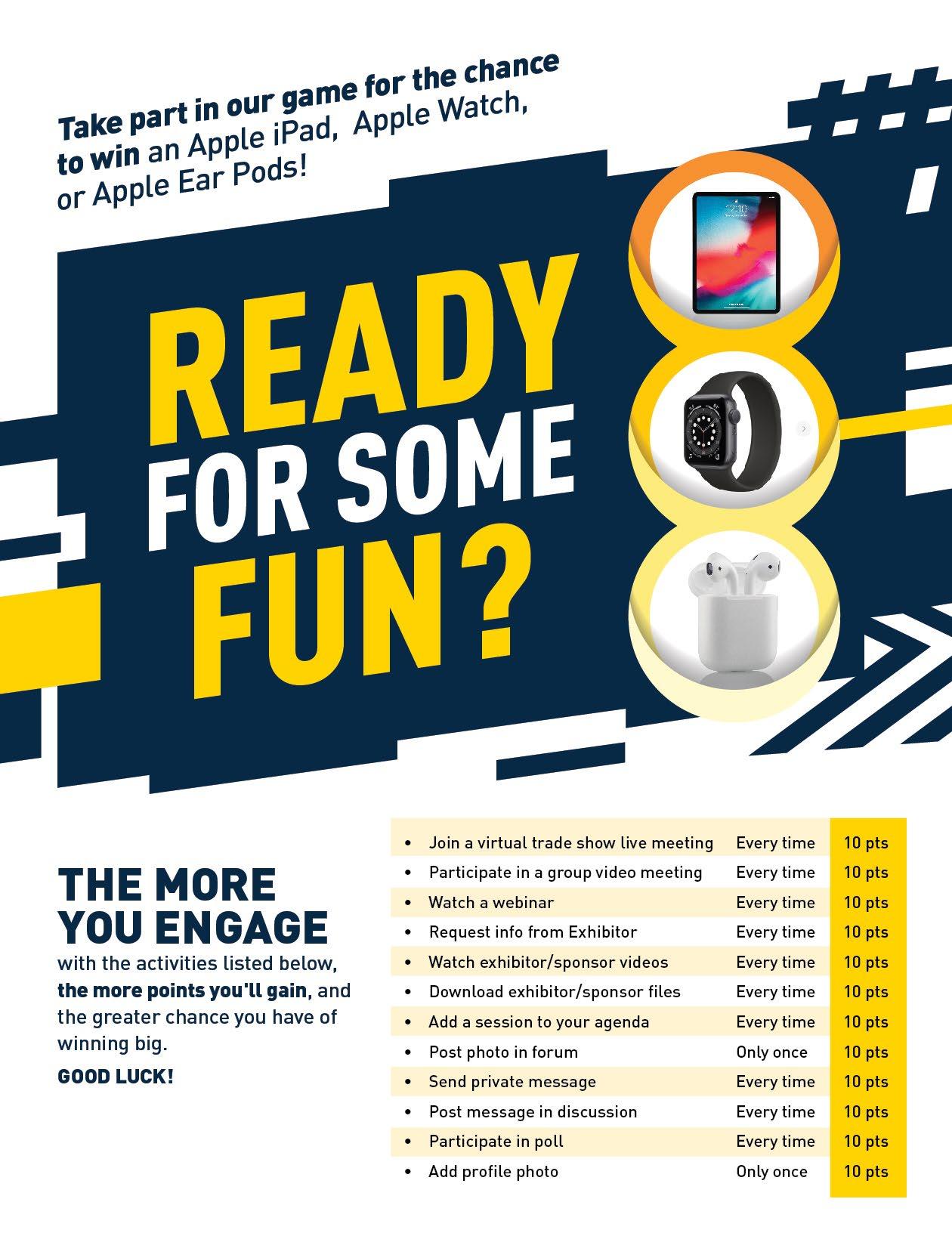
9 minute read
Professional Poster Sessions
1. Andreas Sygros Hospital
Primary analysis of Phase 2 results for cemiplimab in patients (pts) with locally advanced basal cell carcinoma (laBCC) who progress on or are intolerant to hedgehog inhibitors (HHIs) Alexander J. Stratigos,1 Aleksandar Sekulic,2 Ketty Peris,3 Oliver Bechter,4 Martin Kaatz,5 Karl D. Lewis,6 Nicole Basset-Seguin,7 Anne Lynn S. Chang,8 Stéphane Dalle,9 Almudena Fernandez Orland,10 Lisa Licitra,11 Caroline Robert,12 Claas Ulrich,13 Axel Hauschild,14 Michael R. Migden,15 Reinhard Dummer,16 Siyu Li,17 Timothy Bowler,17 Matthew G. Fury17
4. Castle Biosciences
Development, Validation, and Clinical Utility of the 35-Gene Expression Profile Test for Use as an Adjunctive Melanoma Diagnostic Tool Matthew S. Goldberg, M.D.1,2, Aaron S. Farberg, M.D.3, Kelli L. Ahmed, Ph.D.1, Christine N. Bailey, M.P.H.1, Jeffrey Wilkinson, Ph.D.1, Brooke H. Russell, Ph.D.1, Kelly Douglas1, Clare Johnson, R.N.1, Olga Zolochevska Ph.D.1, Kyle R. Covington, Ph.D.1, Robert W. Cook, Ph.D.1
5. Castle Biosciences
31-Gene expression profiling improves risk stratification in patients with T1 cutaneous melanoma Ann Quick, Brian Martin, Christine Bailey, Kyle Covington, Robert Cook
6. Castle Biosciences
Clinical utility of the 40-gene expression profile (40GEP) for improved patient management decisions and disease related outcomes when combined with current clinicopathological risk factors for cutaneous squamous cell carcinoma (cSCC): Case Series J Au, MD1; SJ Kurley, PhD2; A Fitzgerald, PhD2; A-K Somani, MD, PhD1 1Indiana University School of Medicine; 2Castle Biosciences, Inc.
7. Castle Biosciences
The Clinical and Financial Impact of the 31-Gene Expression Profile Testing on Sentinel Lymph Node Biopsy Patient Selection in Patients with T1b Cutaneous Melanomas Justin W. Marson, MD1, Ann Quick PhD2, Brian Martin PhD2, Graham H. Litchman, DO, MS3, Darrell S. Rigel, MD, MS4
9. Cerave
Racial/ethnic variations in skin barrier: Implications for skin care recommendations in skin of color. Andrew F. Alexis1*, Heather Woolery-Lloyd2*, Anneke Andriessen3, Seemal R. Desai4, George Han5, Maritza Perez6, Wendy Roberts7, Susan Taylor8 11. Dr. Kircik
Oral Sarecycline For Treatment Of Papulopustular Rosacea: Results Of A Pilot Sudy Evaluation Of Effectiveness And Safety James Q. Del Rosso, DOa; Leon H. Kircik, MDb; Cheryl Effron, MDc; Zoe D. Draelos, MDd
12. Dr. May E. Venturanza
Efficacy and Safety of Ruxolitinib Cream for the Treatment of Atopic Dermatitis: Pooled Analysis of Two Phase 3, Randomized, Double-Blind Studies Kim Papp, MD, PhD,1 Jacek C. Szepietowski, MD, PhD,2 Leon Kircik, MD,3 Darryl Toth, MD,4 Michael E. Kuligowski, MD, PhD, MBA,5 May E. Venturanza, MD,5 Kang Sun, PhD,5 Eric L. Simpson, MD, MCR6
13. Dr. Phillip Frost Dept of Dermatology & Cutaneous Surgery
Loose Anagen and Short Anagen Syndrome Registry: Establishment and Future Prospects aEran C. Gwillim, MD, aMichael J.
14. LEO Pharma
Efficacy and safety of tralokinumab in a United States subpopulation of patients with moderate-to-severe atopic dermatitis: a subanalysis of ECZTRA 3, a phase 3, randomized, double-blind, placebo-controlled study B.E. Elewski,1 M.J. Zirwas,2 K. Veverka,3 J. Zoidis,3 A. Kurbasic,4 J.I. Silverberg5
15. LEO Pharma
Efficacy and safety of tralokinumab in a United States subpopulation of patients with moderate-to-severe atopic dermatitis: a subanalysis of ECZTRA 1 and 2, two phase 3, randomized, double-blinded, placebo-controlled trials A. Blauvelt,1 N.J. Korman,2 N. Bhatia,3 K. Veverka,4 J. Zoidis,4 A. Kuznetsova,5 E.L. Simpson6
18. Miami Cancer Institute
Demographics, prior therapies, and reasons for cemiplimab treatment: prospective CemiplimAb-rwlc Survivorship and Epidemiology (C.A.S.E.) study in patients with advanced cutaneous squamous cell carcinoma (CSCC) Guilherme Rabinowits,1 Jade Homsi,2 Mina Nikanjam,3 Rhonda Gentry,4 John Strasswimmer,5 Suraj Venna,6 Michael R. Migden,7 Sunandana Chandra,8 Emily Ruiz,9 Haixin R. Zhang,10 Jennifer McGinniss,10 Alex Seluzhytsky,11 Jigar Desai10 19. Peter MacCallum Cancer Centre
Phase 2 study of cemiplimab in patients (pts) with advanced cutaneous squamous cell carcinoma (CSCC): longer follow-up Danny Rischin,1 Nikhil I. Khushalani,2 Chrysalyne D. Schmults,3 Alexander Guminski,4 Anne Lynn S. Chang,5 Karl D. Lewis,6 Annette M. Lim,1 Leonel Hernandez-Aya,7 Brett G.M. Hughes,8 Dirk Schadendorf,9 Axel Hauschild,10 Elizabeth Stankevich,11 Jocelyn Booth,11 Siyu Li,11 Zhen Chen,11 Emmanuel Okoye,12 Israel Lowy,11 Matthew G. Fury,11 Michael R. Migden13
20. Regeneron
Patterns of hedgehog inhibitor (HHI) treatment interruptions and reinitiations among patients with basal cell carcinoma (BCC) in real-world clinical practice Jessica J. Jalbert1, Chieh-I Chen1, Ning Wu1, Matthew G. Fury1, Emily Ruiz2, Wenzhen Ge1
21. Skinbetter Science LLC
Efficacy and Tolerability of a Double-Conjugated Retinoid/AHA Cream Containing Salicylic Acid in Subjects with Mild to Moderate Blemish-Prone Skin Deanne M. Robinson, MD, FAAD1; Daniel P. Friedmann, MD, FAAD2; Jennifer Gordon, MD2; Mitchell Wortzman, PhD3; Diane Nelson, RN, MPH3
22. Univeristy of Colorado Hospital
Interim analysis of Phase 2 results for cemiplimab in patients (pts) with metastatic basal cell carcinoma (mBCC) who progressed on or are intolerant to hedgehog inhibitors (HHIs) Karl D. Lewis,1 Ketty Peris,2 Aleksandar Sekulic,3 Alexander J. Stratigos,4 Lara Dunn,5 Zeynep Eroglu,6 Anne Lynn S. Chang,7 Michael R. Migden,8 Siyu Li,9 Kosalai Mohan,9 Ebony Coates,9 Emmanuel Okoye,9 Jean-François Baurain,10 Oliver Bechter,11 Axel Hauschild,12 Marcus O. Butler,13 Leonel Hernandez-Aya,14 Lisa Licitra,15 Rogerio I. Neves,16 Emily S. Ruiz,17 Frank Seebach,9 Israel Lowy,9 Timothy Bowler,9 Matthew G. Fury9
23. Univeristy of Texas
Cemiplimab improves health-related quality of life (HRQoL) and reduces pain in patients with advanced cutaneous squamous cell carcinoma (CSCC): results from a post hoc exploratory analysis of a Phase 2 clinical trial Michael R. Migden,1 Danny Rischin,2 Medha Sasane,3 Vera Mastey,4 Anna Pavlick,5 Chrysalyne D. Schmults,6 Zhen Chen,4 Alexander Guminski,7 Axel Hauschild,8 Denise Bury,9 Stacie Hudgens,10 Anne Lynn S. Chang,11 Guilherme Rabinowits,12 Sherrif Ibrahim,13 Matthew G. Fury,4 Israel Lowy,4 Siyu Li,4 Chieh-I Chen4

Providing personalized, clinically actionable, tumor-specific genomic information to enable more accurate treatment plan decisions
Accurately identifies risk of recurrence or metastasis in Stage I-III cutaneous melanoma patients
Informs two key clinical management decisions: Sentinel Lymph Node Biopsy (SLNB patient selection
Intesity of follow up, surveillance imaging and referral to surgical or medical oncology Classifies test results as Class 1A, Class 1B/2A, Class 2B Studied in over 5,700 patients Over 58,000 tests ordered to date Supported by evidence from over 25 peer-reviewed publications including 2 meta-analyses Achieves level 1A evidence classification 230+ clinical US sites in collaboration with Castle Biosciences
Improving diagnostic resolution for the benefit of patient care More accurately identify the risk of metastasis
A highly accurate and objective test for difficult-todiagnose melanocytic lesions Designed to provide a result of either benign or malignant in >96% of lesions receiving a test result Classifies test results as Benign, Intermediate-Risk or Malignant Added diagnostic clarity provides confidence to dermatopathologists while helping dermatologists deliver more informed patient management plans Accurately identifies risk of metastasis in SCC patients with one or more risk factors Classifies patients as low risk (Class 1), moderate (Class 2A) or high (Class 2B) biological risk of metastasis Results can inform management decisions within established guidelines for SCC patients Provides unique, complimentary information for SCC management Supported by four peer-reviewed publications

Testing Instructions Ordering DecisionDx tests are simple, with minimal burden to physician office staff. To submit an order, download the requisition form from the website visit CastleTestInfo.com or fax the following items to Castle Biosciences at 866-712-5207:
1.
2.
3.
4. Requisition Form (complete with physician signature) Letter of Medical Necessity (template available) complete with treating physician signature Pathology Report (from the primary biopsy specimen) Copy of patient’s insurance Information On average, results are available within 5 days from the time a sample is received in the Castle Biosciences laboratory. Results will be sent via fax and available to view online through our secure online portal. Delivery via US mail is available upon request.

FOR IMMEDIATE RELEASE
BirchBioMed Inc. Announces Positive Topline Data from Phase 2 Study of FS2 for Treatment of Keloid Scars
Topical FS2 shows statistically significant improvement versus the market leader
VANCOUVER, BC – BirchBioMed Inc., a clinical-stage immunology company focused on the prevention and reduction of immunological fibrotic conditions and defects in the immune system, has announced statistically significant, positive results of a double-blind study into the safety and efficacy of topical FS2 in the treatment of keloid scars. FS2, the active ingredient in BirchBioMed’s FS2 cream, has been shown to inhibit the formation of collagen, which is the major component of scars.
“The study definitively shows that FS2 has significant efficacy on mature keloid scars as compared not only to the vehicle control but to an active scar treatment (Mederma),” said Dr. Mark Nestor, M.D., Ph.D., the study’s principal investigator and director of the Center for Clinical and Cosmetic Research in Aventura, Florida. “Showing significant benefit on mature keloid scars points to significant efficacy for the treatment of hypertrophic scars as well as cosmetic benefit to all post-surgical scars.”
The prospective randomized double-blind trial compared the safety and efficacy of topical FS2 versus the market leading scar cream (Mederma) and a vehicle (placebo cream) in the treatment of mature keloids in 75 subjects. Trial participants were evaluated using both the Vancouver Scar Scale (VSS) and the Patient and Observer Scar Assessment Scale (POSAS). The percentage change in VSS scores for FS2 showed a statistically significant improvement when compared to Mederma (p<0.001) and versus vehicle (p<0.05) at the conclusion of the 180-day trial. Secondary data analysis using POSAS showed dramatic patient satisfaction with FS2 patients scoring a 51% improvement with FS2 versus Mederma’s 28% (p<0.05) and vehicle 20% (p<0.01). Neither Mederma nor vehicle showed statistically significant improvement according to the subjects’ evaluations.
“Subjects using FS2 graded the improvement in their scar greater than Mederma and vehicle at every time point culminating in highly significant differences at 180 days,” said Dr. Nestor. “This signifies that it wasn’t only the appearance of the keloid scar that changed over time with FS2 but more fundamentally the way the subject globally felt about the improvement. Furthermore, there were no safety concerns noted and no significant local skin reactions observed.”
As BirchBioMed’s lead antifibrotic platform therapy, FS2 acts at the molecular level by reducing production of two primary extracellular scar-forming proteins (collagen and fibronectin) and by increasing the production of key scar-degrading enzymes (MMP-1 and MMP-3) to stop the formation of scars and promote the breakdown of existing scars.
“We are delighted with the results of FS2 in providing a safe and effective treatment for disfiguring scars that often profoundly affect a patient’s quality of life,” said Mark S. Miller, chief executive officer of BirchBioMed. “Scarring poses a chronic and growing therapeutic challenge for millions of patients each year. The global cost of treating scars is expected to reach $41.8 billion in 2022, compared with $21.4 billion just three years ago. Moreover, the U.S. National Institutes of Health estimates that 11 million Americans suffer from keloid scars, making it all the more critical that we develop cost-effective and successful treatments.”
About BirchBioMed
BirchBioMed Inc. is a clinical-stage immunology company focused on the prevention and reduction of immunological fibrotic conditions and reversing defects in the immune system. As a University of British Columbia (UBC) spinoff, BirchBioMed holds the exclusive, worldwide pharmaceutical license from UBC for two breakthrough medical technologies in the treatment of scarring and certain autoimmune diseases.
For further information, contact:
Susan Elliott Chief Marketing Officer BirchBioMed Inc. Phone: (905) 833-0826 susan.elliott@birchbiomed.com birchbiomed.com





